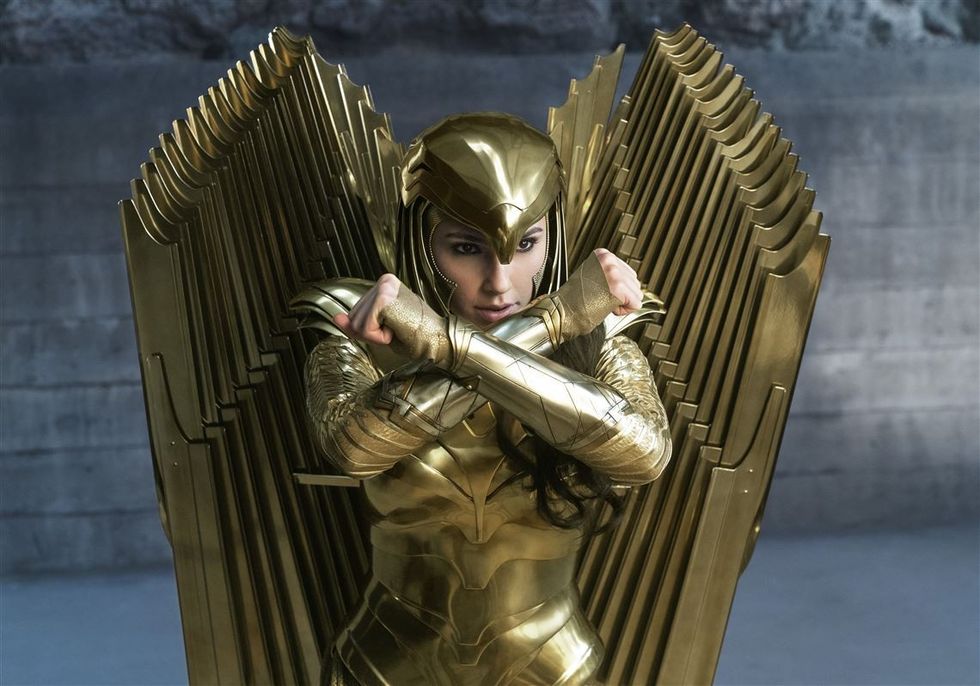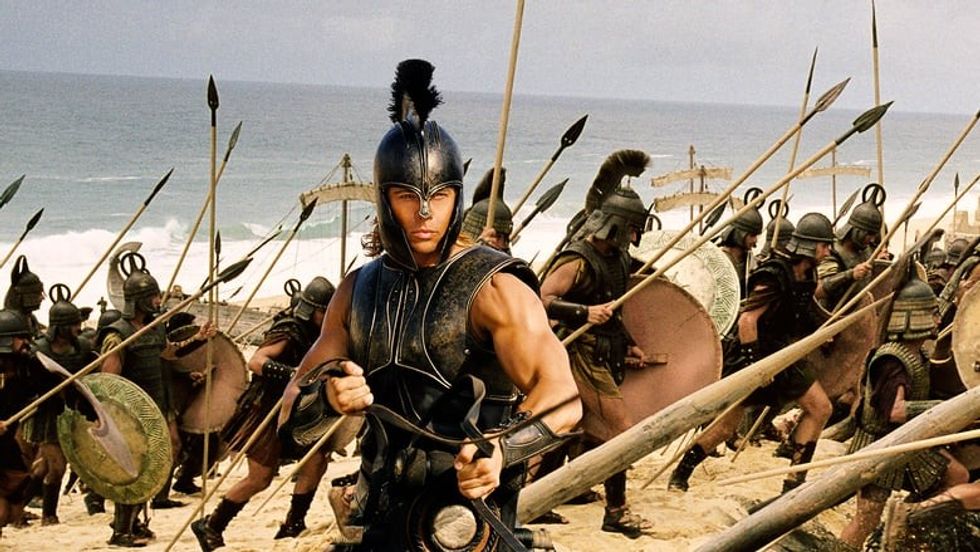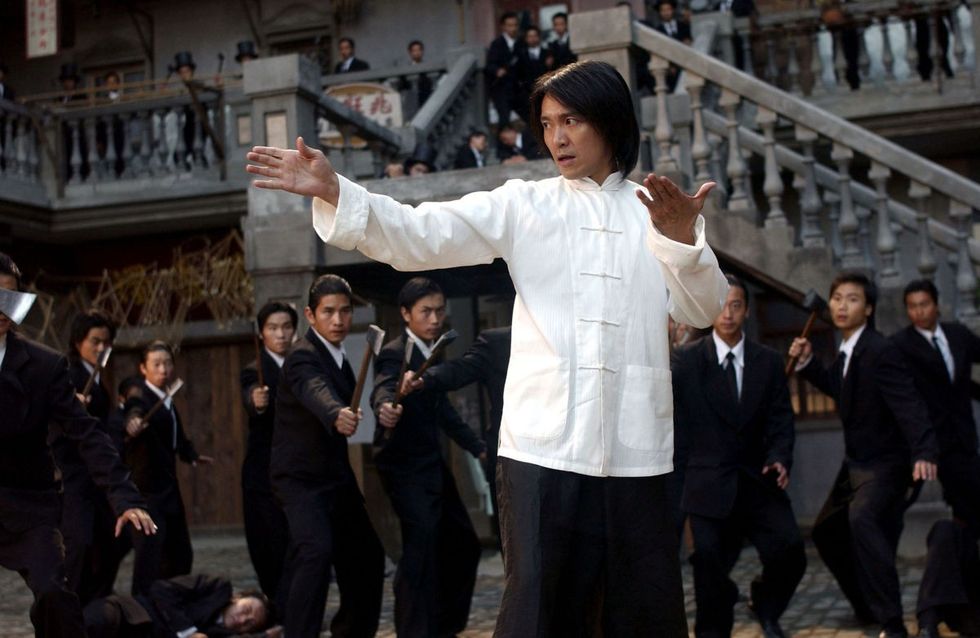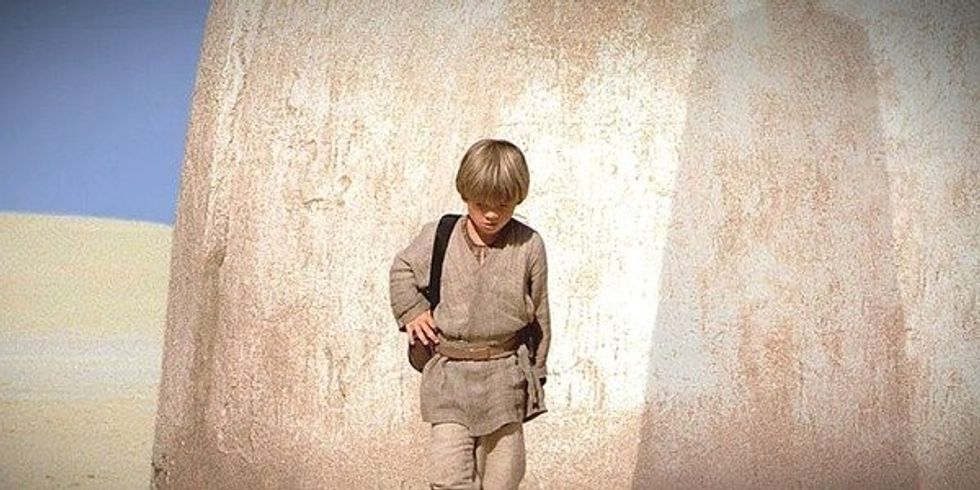
When it comes to telling stories about heroes, there are plenty of tropes surrounding the protagonist. The one I have the most trouble writing is called the Chosen One, but it’s also one of my favorites to watch.
The Chosen One trope is one of the most common in literature, film and TV. It’s at the center of two of the biggest franchises of all time, and every year people try to mimic the storytelling device to find their own fortune on the spec market.
So today, I’m going to crack into the trope, define it, show some examples, and try to catch you up to speed on it while learning about it myself.
Let’s dive in.
The Chosen One Definition
The trope of the Chosen One is a literary device where an individual, often the protagonist, finds themselves singled out by destiny, a prophecy, or their unique lineage to fulfill a monumental task—usually to save the world.
Why We Love The Chosen One Trope

This trope plays into people’s needs and desires to feel special. We like reading or watching a character who has been annoyed out of the ordinary, or preordained to do something great.
Many people live boring lives. I am one of them. Sometimes it’s nice to think there are parts of the cosmos that are pulling the strings and picking and choosing which one of us will find success or have an amazing life.
This trope is so popular that it’s responsible for what I consider to be the two biggest franchises of all time, Harry Potter and Star Wars.
But the history is deeper than that.
The History of the Chosen One

The Chosen One trope has deep, ancient roots. Like from the beginning of storytelling time.
Mythologies often feature heroes or demigods who are divinely selected to perform extraordinary feats.
Think of figures like King Arthur, Perseus, or Moses—all guided by a higher purpose beyond their choosing. This theme weaves through religious narratives as well, with prophets and messiahs playing crucial roles dictated by their faith.
The Chosen One trope gained even more traction in the realm of fantasy literature and later transitioned seamlessly into film and television.
From Tolkien’s Lord of the Rings to the modern phenomenon that is Game of Thrones, and its Prince That Was Promised, authors continue to tap into the trope’s inherent appeal.
The Global Reach of the Chosen One Trope

The thing that’s special about this trope is that it’;s not just an American thing. It has its roots in Greek mythology, but also pops up across the world in different stories, meaning it has a universal appeal and imagination.
While the Chosen One trope flourishes in Western cinema, its presence extends far beyond.
Here are a few examples:
- Bollywood: Indian cinema embraces the idea of the Chosen One. Films like Baahubali and Krrish feature protagonists with exceptional abilities or divine origins tasked with defeating great evils.
- Chinese Cinema: Kung Fu Hustle and other martial arts movies often have unlikely heroes with hidden potential who emerge to face off against powerful villains. This theme stems from the Wuxia literary tradition in China.
- Japanese Anime: Chosen Ones are a mainstay of anime, from Naruto to Sailor Moon, where teenagers with extraordinary abilities become beacons of hope. The trope often connects with themes of legacy and inherited powers.
Examples of The Chosen One Trope in Film and TV

We built it up enough, let’s take a look at a few examples that I think properly highlight the trope.
Classic Examples:
- Neo from The Matrix: Quite literally “The One” prophesied to break the system and liberate humanity from the Matrix.
- Luke Skywalker from Star Wars: The son of a powerful Jedi, destined to use the Force to defeat the Galactic Empire and his own father, Darth Vader.
- Harry Potter from the Harry Potter series: “The Boy Who Lived,” targeted by the dark wizard Voldemort, carries the prophecy to vanquish evil.
- Buffy Summers from Buffy the Vampire Slayer: The latest in a long line of vampire slayers, Buffy inherits extraordinary powers and the responsibility to protect the world from supernatural forces.
Slightly Tweaked Examples:
- Frodo Baggins from The Lord of the Rings: An unassuming hobbit becomes the unlikely ring-bearer, tasked with destroying the One Ring and ending the reign of Sauron.
- Katniss Everdeen from The Hunger Games: Initially a volunteer in the place of her sister, Katniss becomes a symbol of rebellion against the oppressive Capitol, defying expectations along the way.
- John Connor from the Terminator franchise: As the foretold leader of the human resistance against Skynet, John’s very survival is crucial to humanity’s future.
- Wonder Woman (Diana Prince) from DC Comics: Daughter of Zeus and Queen of the Amazons, she’s destined to become a bridge between the world of the gods and humans, bringing peace and understanding.
Subversions of the Trope:
- Aang from Avatar: The Last Airbender: While technically the Chosen One (the Avatar), Aang is also a child who simply wants to have fun. The series explores the burden of responsibility even when one might not be ‘ready’.
- Shrek from Shrek: An ogre living in a swamp, the opposite of a classic hero, finds himself thrust into a fairy tale quest, poking fun at the very concept of destiny along the way.
- Enola Holmes from Enola Holmes: While having a famous detective brother (Sherlock), Enola breaks from the mold. She carves her own path, using her wit and skills to solve her own mysteries, defying the expectation that the Chosen One must be male.
The Chosen One trope taps into a fundamental human desire for something greater than ourselves. We yearn for heroes in a complicated world.
These narratives offer hope and a sense of purpose, assuring us that even an ordinary person can rise to extraordinary challenges if fate calls upon them.
Let me know what you think in the comments.
Author: Jason Hellerman
This article comes from No Film School and can be read on the original site.
